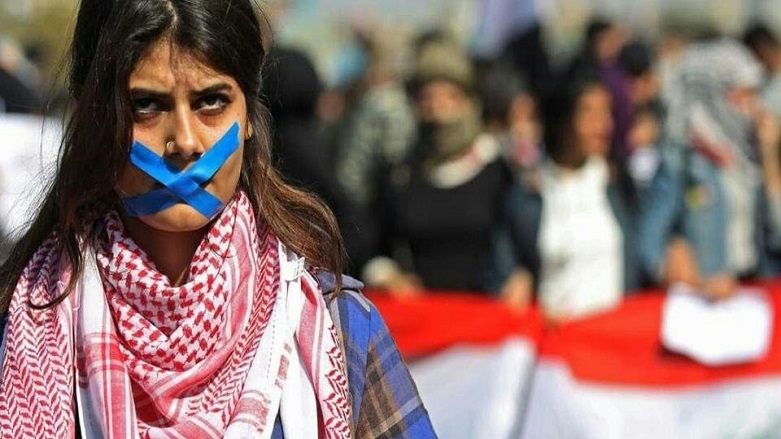Iraqi Observatory for Human Rights report outlines declining freedom of press in Iraq

ERBIL (Kurdistan 24) – The freedom of the press in Iraq is declining, with hundreds of journalists facing "arrests, killings, and disappearance," the Iraqi Observatory for Human Rights outlined in a report released on Tuesday, World Press Freedom Day.
"The freedom of the press in Iraq is much lower than it should be in a country that raised the slogan of democracy nearly 20 years ago," the report charges, pointing out that Iraq has a constitution that guarantees "the right to express an opinion and obliges the authorities to protect it."
"Since 2003, hundreds of journalists and media professionals were killed, arrested, and even disappeared," it said. Furthermore, media headquarters have been raided in response to their coverage or editorial lines.
"From May 3, 2021, to May 2, 2022, there has been an increase in the influence of parties that have an interest in antagonizing freedom of expression and undermining the space for journalistic work in Iraq," the report noted.
Citing journalists who have suffered backlash for their work, the report stated that "the authorities, influential parties, and extremist groups restrict press freedoms and expression of opinion and did not hesitate to do anything to silence journalists and deter them from researching issues such as corruption and abuse of state resources."
The authorities also "abused the law, whether when they arrested journalists during the past year in the streets while they were doing their fieldwork or in their residences, without legal authorization."
The journalists also criticized what they describe as "the authorities' complete neglect and inaction in carrying out their duties regarding the shootings of journalists, their harassment, pursuit, and threats by armed men believed to be affiliated with influential parties, ruling political parties, and armed factions, despite the existence of what can be considered evidence leading to the perpetrators."
Dozens of journalists were forced to migrate from southern and central Iraq to the Kurdistan Region or other countries after being threatened, persecuted, or after seeing what their colleagues were subjected to.
The observatory called on parliament to uphold the freedom of expression guaranteed by the Iraqi constitution and "establish an appropriate atmosphere for the press in Iraq." Such calls, it noted, have so far been in vain.
"Without the authorities' commitment to their legal and constitutional duties, Iraq will remain at the bottom of international reports that respect press freedoms and the right to an opinion," it warned.
On the occasion of World Press Freedom Day, the observatory renewed its call for Iraq to legislate the law on freedom of expression and the right to access information "as soon as possible." It also called on the relevant authorities to "ensure the security of journalists and media outlets and to follow legal means when summoning them to police stations or courts in cases in which they commit crimes."
They also stressed "the importance of not restricting press freedom in Iraq, respecting workers in the press sector, and respecting freedom of opinion and expression, as democratic systems are not built without press freedom."